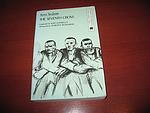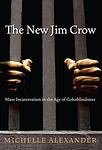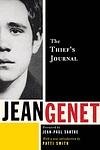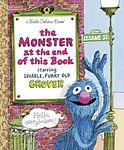The Greatest "Prisoners" Books Since 1900
Click to learn how this list is calculated.
This list represents a comprehensive and trusted collection of the greatest books. Developed through a specialized algorithm, it brings together 300 'best of' book lists to form a definitive guide to the world's most acclaimed books. For those interested in how these books are chosen, additional details can be found on the rankings page.
Genres
The "Prisoners" category of books typically includes stories that revolve around characters who are incarcerated or have been imprisoned at some point in their lives. These books may explore the harsh realities of life behind bars, the psychological toll of confinement, and the challenges of reintegration into society after release. They may also delve into themes of justice, redemption, and the human capacity for resilience in the face of adversity. Overall, the "Prisoners" category offers a glimpse into the complex and often overlooked world of those who have been incarcerated.
Countries
Date Range
Reading Statistics
Click the button below to see how many of these books you've read!
Download
If you're interested in downloading this list as a CSV file for use in a spreadsheet application, you can easily do so by clicking the button below. Please note that to ensure a manageable file size and faster download, the CSV will include details for only the first 500 books.
Download-
1. One Day in the Life of Ivan Denisovich by Aleksandr Solzhenitsyn
This novel provides a detailed account of a single day in the life of a prisoner, Ivan Denisovich, in a Soviet labor camp in the 1950s. The narrative follows Ivan as he navigates the harsh realities of his daily routine, from the moment he wakes up to when he goes to bed. The book provides a stark portrayal of the brutality and inhumanity of the Soviet gulag system while also highlighting the resilience and dignity of the human spirit under such oppressive conditions.
-
2. Kolyma Stories by Varlam Shalamov
"Kolyma Stories" is a collection of short stories that vividly depict the harrowing experiences of prisoners in the Soviet Gulag during the Stalinist era. Written by Varlam Shalamov, a survivor of the Kolyma labor camps himself, the book offers a raw and unflinching portrayal of the inhumane conditions, extreme suffering, and moral degradation endured by the prisoners. Through his powerful and haunting narratives, Shalamov sheds light on the resilience of the human spirit and the indomitable will to survive amidst unimaginable cruelty.
-
3. De Profundis by Oscar Wilde
"De Profundis" is a lengthy letter written by a man during his imprisonment for gross indecency, reflecting on his past life and experiences. The letter is addressed to his former lover, and through it, he expresses his feelings of regret, despair, and hope. The man discusses his spiritual journey during incarceration, his newfound understanding of suffering, and his changing views on art and morality. The work is a profound exploration of love, forgiveness, redemption, and the human spirit's resilience.
-
4. Our Lady of the Flowers by Jean Genet
The novel is a dark, poetic exploration of the criminal underworld in Paris, focusing on the life and fantasies of a homosexual prostitute and thief. The protagonist, while in prison, creates an elaborate fantasy world populated by outcasts, convicts, and murderers, including a transgender character who becomes his ideal of beauty and purity. The narrative is filled with graphic depictions of sex and violence, and explores themes of transgression, identity, and the transformative power of the imagination.
-
5. A Lesson Before Dying by Ernest J. Gaines
Set in the pre-Civil Rights South, the novel explores the story of a young black man wrongfully accused and sentenced to death for a crime he didn't commit. A local schoolteacher, at the request of the man's godmother, attempts to help the condemned man gain a sense of dignity and self-worth in the final days of his life. The story grapples with issues of racial inequality, justice, humanity, and moral obligation.
-
6. Falconer by John Cheever
The novel follows the story of a man named Ezekiel Farragut, a university professor and drug addict who is serving time in Falconer State Prison for the murder of his brother. Through his experiences and interactions with other inmates, Farragut grapples with guilt, addiction, and the human condition, ultimately leading to his escape and a chance at redemption. The narrative explores themes of freedom, identity, and the complexities of familial relationships.
-
7. The Seventh Cross by Anna Seghers
"The Seventh Cross" is a gripping tale set in Nazi Germany that revolves around seven men who escape from a concentration camp. The camp commandant erects seven crosses, vowing to hang each escapee on their return. The story primarily follows one escapee, who manages to evade capture and make his way back to his hometown. The narrative explores the psychological terror imposed by the Nazi regime, the resilience of human spirit, and the subtle forms of resistance within the German populace.
-
8. Kiss of the Spider Woman by Manuel Puig
"Kiss of the Spider Woman" is a novel set in an Argentine prison where two cellmates, a gay window dresser and a political revolutionary, share stories to pass the time. The window dresser recounts various films he's seen, which often involve strong, glamorous women, while the revolutionary shares his political ideologies. As they spend time together, they form an unlikely bond, exploring themes of sexuality, oppression, and the power of storytelling.
-
9. The Enormous Room by E. E. Cummings
"The Enormous Room" is a semi-autobiographical novel about the author's time spent in a French prison during World War I. The protagonist is arrested and detained for his anti-war sentiments, and the story explores his experiences and observations within the prison. The novel is known for its unique and experimental use of language and its vivid, often surreal depictions of life in confinement.
-
10. The New Jim Crow by Michelle Alexander
"The New Jim Crow" is a thought-provoking and eye-opening book that examines the deeply ingrained racial bias within the American criminal justice system. Drawing on extensive research and personal anecdotes, the author explores how the War on Drugs has disproportionately targeted and marginalized Black communities, leading to a modern-day system of racial control and oppression. This powerful critique challenges readers to confront the systemic racism that continues to perpetuate inequality and injustice in the United States.
-
11. The Wind on the Moon by Eric Linklater
The book is a whimsical and captivating tale of two young girls, Dinah and Dorinda, who, when left alone by their father, find themselves capable of transforming into any creature they choose. Throughout their magical adventures, they transform into kangaroos, rescue their father from a dungeon, and even win a dance contest. The story is a delightful mix of fantasy, humor, and adventure, exploring themes of freedom, friendship, and courage.
-
12. The Thief's Journal by Jean Genet
The book is a fictionalized account of the author's experiences in the criminal underworld of early 20th-century Europe. It is a narrative that delves into the life of a man who embraces his identity as a thief and a homosexual, exploring the intersections of crime, sexuality, and social defiance. The protagonist navigates through various relationships with fellow outcasts and criminals, while also confronting the moral codes of society. The work is known for its poetic and introspective prose, as well as its exploration of themes such as betrayal, freedom, and the search for beauty within the margins of society.
-
13. Half of Man is Woman by Zhang Xianliang
This novel provides a deeply personal account of the author's experiences during China's Cultural Revolution and his subsequent imprisonment in a labor camp. The protagonist struggles with the harsh realities of his imprisonment, including starvation and physical abuse, while also grappling with his own identity and the societal expectations of masculinity. His release and subsequent marriage only further complicate his quest for self-understanding, as he navigates the challenges of reintegrating into society and maintaining a relationship with a woman who has her own traumatic past.
-
14. The Man Died by Wole Soyinka
"The Man Died" is a powerful non-fiction work that delves into the harrowing experiences of the author during his 22-month imprisonment without trial by the Nigerian government. Written during the Nigerian Civil War, the book is a poignant exploration of the depths of human suffering and the resilience of the spirit. Through a series of reflections, narratives, and meditations, it exposes the brutalities of political oppression and interrogates the silence and complicity surrounding acts of torture and injustice. The author's vivid prose and philosophical insights challenge the reader to confront the complexities of human rights, dignity, and the struggle for freedom in the face of tyranny.
-
15. A Prisoner Of War’s Story by Stratis Doukas
This book recounts the harrowing experiences of a Greek soldier captured by the Ottoman Army during World War I. After being taken prisoner, he endures a grueling march across Anatolia alongside other captives, facing harsh conditions, starvation, and abuse. Throughout his ordeal, he witnesses the suffering of his fellow prisoners and the brutal realities of war. His story is not just one of survival against the odds but also a poignant account of friendship, resilience, and the indomitable human spirit. The narrative, based on true events, offers a unique perspective on the complexities of war, loyalty, and the will to live despite insurmountable challenges.
-
16. The Zone by Sergei Dovlatov
"The Zone" is a semi-autobiographical novel that follows the life of a writer who is confined to a Soviet labor camp. Through a series of vignettes, the protagonist reflects on his experiences in the camp, the absurdities of the Soviet system, and the struggles of maintaining his identity and integrity in the face of oppression. With dark humor and sharp observations, the book offers a poignant and satirical portrayal of life in the Soviet Union.
-
17. The Loneliness of the Long-distance Runner by Alan Sillitoe
This novel revolves around a rebellious young man from a working-class background who finds solace in long-distance running. After being sent to a Borstal (youth detention center) for robbing a bakery, he is selected for the institution's cross-country running team due to his talent for running. However, he uses the solitude of his long-distance runs to reflect on his life and the class system that has landed him in his current situation. Despite the expectations placed on him, he ultimately chooses to assert his independence in a final act of defiance, symbolizing his rejection of the system that seeks to control him.
-
18. The Jailing Of Cecelia Capture by Janet Campbell Hale
The novel explores the life of Cecelia Capture, a Native American woman who finds herself incarcerated after a series of unfortunate events. As she sits in jail, Cecelia reflects on her troubled past, including her struggles with identity, her experiences with racism and poverty, and the complexities of her relationships with family and lovers. The narrative delves into Cecelia's introspection and memories, painting a poignant picture of a woman grappling with the weight of her cultural heritage and personal choices, while also critiquing the social and legal systems that have contributed to her current predicament.
-
19. Just Mercy by Bryan Stevenson
This book is a profound work of non-fiction that focuses on the author's experiences as a young lawyer fighting for the rights of those wrongfully convicted or excessively punished. The narrative primarily revolves around the case of a black man sentenced to death for a crime he didn't commit. The author not only exposes the inherent racial bias and systemic flaws in the American criminal justice system, but also provides a compelling argument for compassion in the pursuit of justice.
-
20. A World Apart by Gustaw Herling-Grudziński
"A World Apart" is a powerful memoir that recounts the author's experiences as a political prisoner in a Soviet labor camp during World War II. Through vivid and harrowing descriptions, the book exposes the brutality and inhumanity of the camp system, as well as the resilience and strength of the prisoners. It serves as a haunting reminder of the atrocities committed during this dark period of history and the enduring human spirit.
-
21. Prisoner Without A Name, Cell Without A Number by Jacobo Timerman
The book is a harrowing memoir of a journalist who was detained and tortured by the Argentine military government during the late 1970s. It vividly recounts his experiences of imprisonment, the brutal interrogation techniques he endured, and his observations on the political and social turmoil of Argentina under a repressive regime. The narrative not only exposes the personal anguish and struggle of the author but also serves as a critical examination of the impact of totalitarianism on society and the perilous state of human rights under such governance.
-
22. You Can’t Win by Jack Black
"You Can’t Win" is a captivating autobiography that delves into the life of a professional thief and safe-cracker in the late 19th and early 20th centuries. The narrative provides a gritty, firsthand account of the author's experiences in the criminal underworld, detailing his encounters with various criminals, hobos, and the harsh realities of a life of crime. The book also explores themes of addiction, incarceration, and the author's eventual disillusionment with the criminal lifestyle, leading to his advocacy for prison reform. Through its vivid storytelling and introspective analysis, the memoir offers a window into a bygone era and a subculture often hidden from society’s view.
-
23. Memoirs From The Women’s Prison by Nawal El Saadawi
The book is a powerful autobiographical account of the author's imprisonment in 1981 by the Egyptian government for alleged crimes against the state, primarily due to her outspoken views on women's rights and her criticisms of political repression. Within the confines of the women's prison, she encounters a diverse group of inmates, from political dissidents to murderers, each with their own story and struggles. The narrative delves into the harsh realities of life behind bars and the resilience of women who support one another in the face of adversity, revealing the oppressive mechanisms of the state and the enduring spirit of resistance among women.
-
24. Monster by Walter Dean Myers
The book is a powerful exploration of the American juvenile justice system through the eyes of a 16-year-old African-American boy who is on trial for his alleged involvement in a robbery-turned-murder. As he faces the possibility of a lengthy prison sentence, the protagonist grapples with his identity, the perceptions of others, and the harsh realities of a system that is quick to label him a monster. The narrative is uniquely presented through a mix of screenplay format and diary entries, offering an introspective and multifaceted look at the protagonist's experiences and the complexities of morality, truth, and humanity within the confines of a legal battle for his future.
-
25. Prisoner Of Love by Jean Genet
"Prisoner of Love" is a non-fiction book that blends memoir, history, and philosophical reflection. It chronicles the author's experiences in the late 1960s and early 1970s among Palestinian fedayeen (guerrilla fighters) and later, in the mid-1970s, with the Black Panthers in Jordan. The narrative delves into the daily lives of these revolutionaries, their struggles, and the author's own reflections on issues of love, loyalty, and identity. Through his immersive and poetic prose, the author explores the complexities of political commitment and the human condition, offering a deeply personal yet universally resonant account of solidarity and resistance.
Reading Statistics
Click the button below to see how many of these books you've read!
Download
If you're interested in downloading this list as a CSV file for use in a spreadsheet application, you can easily do so by clicking the button below. Please note that to ensure a manageable file size and faster download, the CSV will include details for only the first 500 books.
Download




















